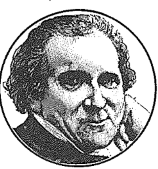George W. S. Trow: The City in the Mist; Little Brown; Boston.
What’s in a name? Fair Juliet’s answer notwithstanding, we insist that there is something to it. Take the case of a relatively young author who places two initials between his given title and his surname. There’s something to that in the closing years of this century, though it would be barely monocle-raising in the 19th century in one of the better London clubs. George W. S. Trow seems to be a man out of his proper place and time, which would be 100 years ago across the Atlantic. Stylistically, The City in the Mist vents the aspirations of a junior Henry James. Whereas James crafted labyrinths that have, finally, goals, Trow has put together a series of cul-de-sacs. Trow’s triumph of form over content results only in a trophy that rings hollow, bibelot for the over-mannered.
Ken Auletta: The Art of Corporate Success: The Story of Schlumberger; G. P. Putnam’s Sons; New York.
In his last outing between hard covers, Mr. Auletta examined that huge, amorphous, ubiquitous mass known as “the underclass.” That, of course, is not a particularly tony subject. What’s more, members of the underclass don’t buy books. Meanwhile. The One-Minute Manager, In Search of Excellence, and various sundry books about Japanese management techniques, quality circles, and the like are hot numbers at the B. Daltons and Waldenbooks and the rest. Showing a grasp of entrepreneurial techniques and a touch of managerial savvy, Mr. Auletta has parlayed his New Yorker profile of oil-patch megagiant Schlumberger and its CEO, Jean Riboud, into what will undoubtedly become this season’s Megatrends — though one that is less, as the insiders put it, “blue-sky” and more “real-world.” One thing puzzles us: with all of the up-and-coming leaders of industry busy reading, who’s doing anything? cc
Gerard K. O’Neill: The Technology Edge: Opportunities for America in World Competition; Simon & Schuster; New York.
Gerard K. O’Neill makes an observation that virtually all Americans have heard, understand, and do little about: other countries, notably Japan, are making giant steps in the development of new (e.g., computer-related) and existing (e.g., auto and steel) technologies; if American managers, workers, academics, students, government officials, etc. don’t come up to world speed, the eminence of the U.S. will be found only un history books. After essaying several Japanese projects that make today’s microelectronic marvels look like curios from the first edition of Sears Roebuck catalog, O’Neill examines Hewlett-Packard, Delta, DEC, and IBM and finds hope. Hoping is something that Americans are getting good at; working is a different story. cc

Leave a Reply